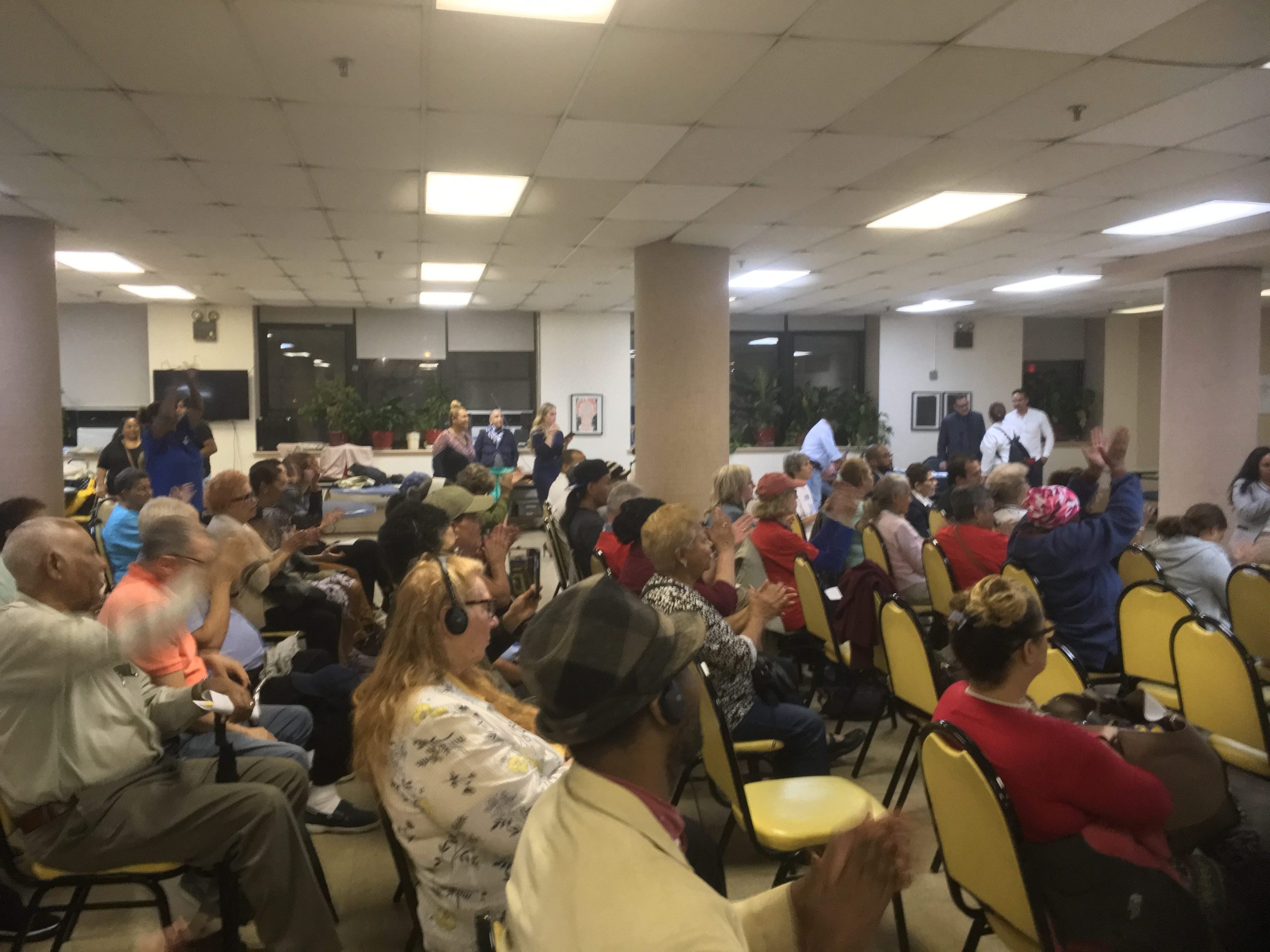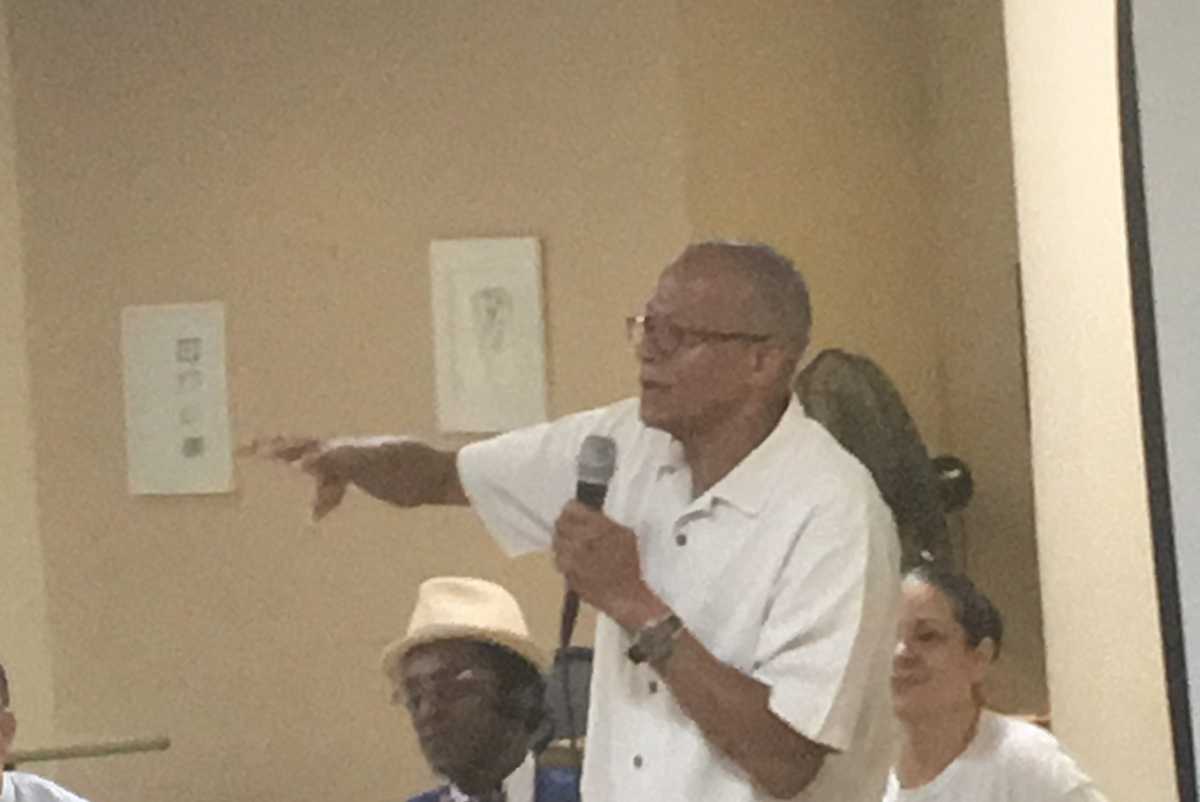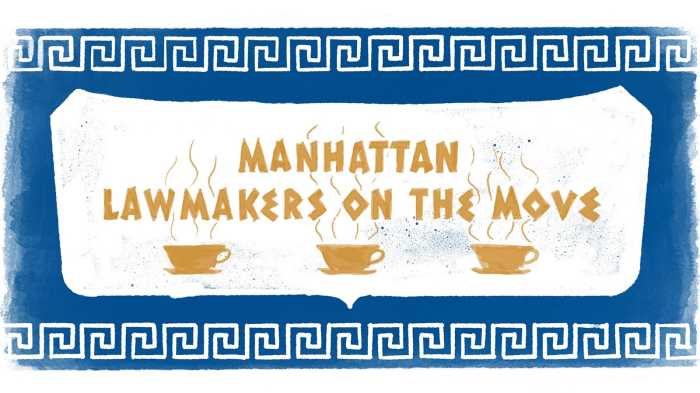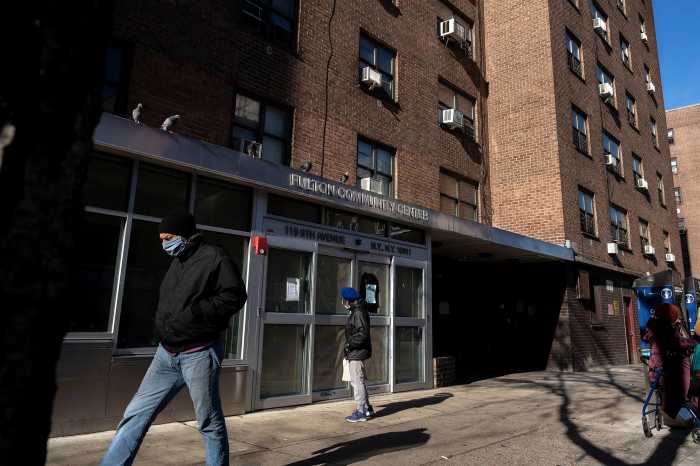“FIGHT!” shouted Assembly Member Al Taylor (D-Hamilton Heights, Harlem, Washington Heights). The assembly member repeated his cry in front of a crowd of tenants and tenant advocates, who responded with enthusiasm.
When we fight in unity, we win, our children win, and our communities win,” said Taylor. “So from Buffalo to the Bronx, to Harlem, to Inwood, to Washington Heights, everybody in the state won. And it happened because you went to Albany. It happened because you came to meetings like this. It happened because you trusted people like us to get the job done!”
All of this took place last night at an open forum in Washington Heights about 2019’s Housing Stability and Tenant Protection Act (HSTPA) – one of the most comprehensive tenant protection laws in New York’s legislative history.
The forum took place at the Fort Washington Senior Center, 99 Fort Washington Ave. Among the panelists were State Senator Robert Jackson (D-Washington Heights, Fort George, Inwood), Assembly Members Al Taylor (D-Hamilton Heights, Washington Heights, Inwood) and Carmen De La Rosa (D-Upper Manhattan), and several other tenant advocates and housing experts.
The panelists began by recounting the history that brought the act to fruition. Woodside on the Move organizer Ivan Contreras said that he and his colleagues had been fighting for tenant advocacy for years, but didn’t have enough allies in the State Senate. He brought up the Independent Democratic Conference (IDC), a coalition of seven ex-Democratic State Senators who consistently voted against progressive measures.
“They called themselves Democrats, but in the end they allied themselves with the Republicans,” said Contreras. “When we tried to bring progressive bills to the floor, the IDC would just kill them without even reading them.”
Contreras and his peers knew that he’d have to use the power of his vote to facilitate change – and they did. In 2018, the tide turned. Five of the seven IDC members lost the election, and the Democrats achieved a supermajority in the State Senate. It was then that tenant advocates saw the opening that they needed to instigate change.
Months later, the new State Senate Majority Leader Andrea Stewart-Cousins (D-Westchester) authored the HSTPA and brought it to the floor. The act was based on the demands of Housing Justice for All, the tenant advocacy coalition that formed in the wake of 2018’s blue wave. It passed the Assembly and State Senate in June with a vote of 36-26, and was signed by Governor Andrew Cuomo (D) soon afterward.

“We got ourselves arrested, we yelled for over five hours, and we won,” said Contreras. “We told them directly, you vote for tenants, or you won’t have a job next year.”
The panelists went on to summarize what, exactly, the new law does for tenants. Broadly, the law closes several housing law loopholes that landlords were previously able to exploit. For instance, landlords who sign preferential rent agreements with their tenants can no longer raise the rent up to the full legal limit upon renewing the lease.
The law also mandates that if a tenant was overcharged in the past six years, they are entitled to receive triple the amount they overpaid in compensation.
Most importantly, all of the aforementioned changes are permanent. Prior to the law’s passage, rent regulations could expire after four to eight years; now, they’re set in stone.
However, the panelists weren’t going to rest on their laurels. As they reminded the crowd, the landlords haven’t given up the fight yet. Last month, New York landlords filed a lawsuit against the bill, challenging its constitutionality.
“The landlords are gonna fight,” said Robert Jackson. “If you don’t know, they filed a lawsuit against the rent law. But you know what? We’re gonna fight like hell. We’re never gonna give up. All of the groups you belong to – RENA, Uptown Community Democrats, Legal Aid Society – stick with them.”








